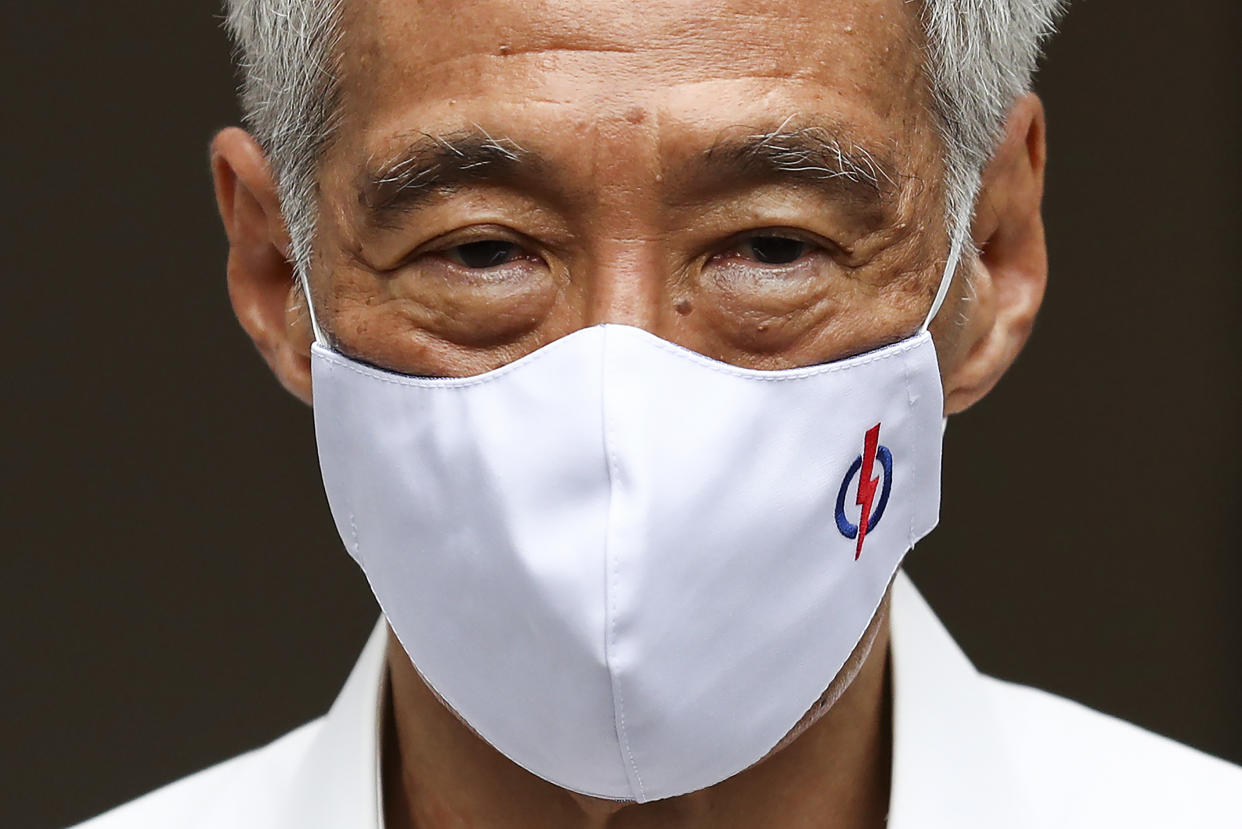Singapore to run deficit into 2021 to buffer virus hit, Lee says

By Michelle Jamrisko
(Bloomberg) -- (Bloomberg) --
Singapore Prime Minister Lee Hsien Loong sees the government running a budget deficit at least through early next year, and perhaps “a while” longer, as the coronavirus-hit economy bends the city-state’s traditional fiscal prudence.
“The next budget is in February. I very much doubt we will have any budget surplus by then,” Lee said in an interview with Bloomberg Editor-in-Chief John Micklethwait at the New Economy Forum, held virtually this year. “I hope that we will be able to come back to prudence and a balanced budget, but it may take a while.”
Governments globally have spent trillions of dollars this year to combat Covid-19 and its impacts. Singapore was among the first in Asia to unveil massive stimulus, and in March sought to tap its national reserves for the first time since the global financial crisis.
In all, the government has pledged about S$100 billion ($74 billion) across five aid packages to stem the virus and its hit to the economy, about half of which has been approved to be financed by past reserves. The latest estimated balance for fiscal year 2020 is a deficit of S$74.2 billion, according to government figures in October.
Lee defended the need for the deficit, saying in the interview released Tuesday that “just from a counter-cyclical point of view, you do not want to have a negative fiscal impulse,” and instead must spend to keep people in jobs or support them through unemployment. His comments echo calls by the International Monetary Fund -- usually a proponent of budget restraint -- to set aside debt fears for now and raise public spending to spur economies.
Lee, 68, said Singapore is still in the middle of a crisis, and reiterated that he planned to leave office once he could “hand it over in good shape,” which he hoped would be before “too long.” Before the pandemic, Lee had said he aimed to step down by the time he turned 70.
the pandemic, Lee had said he aimed to step down by the time he turned 70.
Read more from Bloomberg’s interview with Lee: |
While Covid has prompted massive spending, it won’t be easy to find ways to offset those costs with higher revenue, said David Sandison, head of tax for Grant Thornton Singapore Pte Ltd., a business adviser. The city-state’s “progressively lower taxes” and incentives have been a big draw for businesses, and remain especially so at a time when many economies are looking inward, he said.
‘Suspended Animation’
For industries like aviation, tourism and entertainment, “it is better for me to take care of them and keep these sectors in suspended animation, than to risk reviving them before we are ready to deal with the consequences and then we have another major Covid outbreak,” Lee said.
At the same time, he added that it must be “deeply ingrained” in Singapore that the reserves aren’t “bottomless” and “we have to earn our keep.”
“We have to deal with the public health and the economic requirements in the immediate and medium term, but one day this too will pass,” he said. “And when it does, we must make sure that we can get back to the habit of balancing our budgets.”
Vaccines
The southeast Asian nation is looking to further ease pandemic curbs as it attempts to resume more economic and social activities. Singapore has largely controlled the virus, with new daily community cases hovering at or near zero over the past few weeks.
Officials have said it might be possible to enter a third phase of loosening virus restrictions by year-end, the stage in which the country would remain until an effective vaccine or Covid-19 treatment is developed. Singapore is in discussions with Pfizer Inc., along with several other pharmaceutical companies, and is pursuing a broad and diversified vaccine portfolio for its population.
“I doubt we will be first, but we don’t want to be the last,” Lee said, addressing whether it is harder for smaller countries to secure vaccines. “Big countries have made sure they are the first in the queue, sometimes by extremely comprehensive measures.”
The New Economy Forum is organized by Bloomberg Media Group, a division of Bloomberg LP, the parent company of Bloomberg News.
(Updates with Lee’s comments on vaccines for Singapore from 11th paragraph)
© 2020 Bloomberg L.P.


